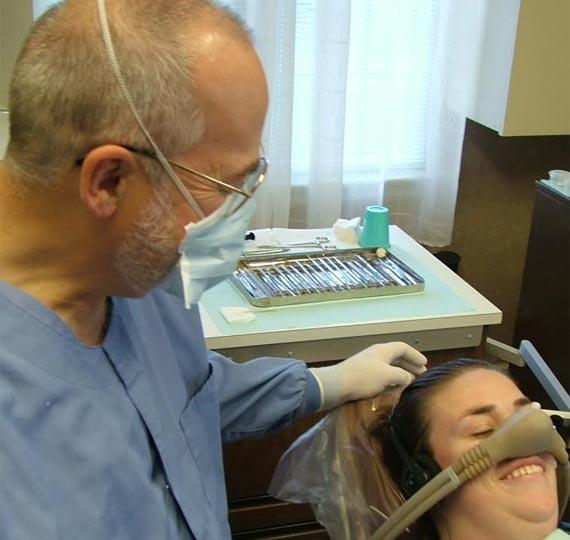Sedation FAQs: Answers to Your Questions About Sedation Dentistry
What is the “one pill” type of sedation advertised by others? Is it enough for surgery?
A: Yes. The “1 pill one hour before” Sedation is classified as “Oral/Minimal” sedation. This is roughly equivalent to the pre-medication we routinely prescribe in our office. It works well if you aren’t afraid or are having a relatively easy procedure. HOWEVER: This approach may not be enough if you’re nervous; and it’s certainly not enough if you need wisdom tooth removal, multiple extractions/difficult surgical extractions, etc. In these situations – or where people are fearful or nervous – the more advanced modes of sedation we provide work better than “just one pill.”

Dr. Curry’s sedation options are different from the “one pill” sedations offered by other dentists.
Q: “What’s the difference between the “one pill one hour before” sedations I’ve seen in web ads for other dentists – and the kind of sedation Dr. Curry does? It’s not the same thing, is it?”
A: You’re right. It’s not the same thing. “One pill” Sedations are classified as “Oral/Minimal” sedation. It takes the edge off a person’s anxiety and is a great service: but it’s very limited. Dr. Curry has been trained in, and can provide, both Minimal and Moderate Sedation: which includes oral or enteral pre-medication, nitrous oxide/oxygen gas, administration of medications through an I.V. line – or any combination of these approaches. In short, we have a greater range of sedation services than the “1 pill an hour before” folks, and can make you more comfortable by customizing your level of sedation. More sedation options = greater patient comfort.
Can Sedation help “hard to numb” patients and people who are afraid of the dentist?
Q: “I’ve always had a hard time getting numb and because of this, now I’m really afraid. Will Sedation help me?”
A: Yes. Fear and pain work together, each increasing the other. Basically, fear makes things hurt more and pain makes you more fearful. These things spin out of control and get worse, over time. (The proverbial “vicious cycle”). More advanced levels of sedation, like Moderate Sedation, help by disrupting the cycle. It decreases the bad things – like fear, anxiety and pain – and allows patients to be relaxed and comfortable. It is a beautiful thing.
Can Sedation help with gagging?
Q: “I gag really easily and my dentist has a hard time working on me. Will sedation help with gagging?
A: Yes.
Dental Sedation After-Care
Q: “What will happen after I go home following sedation in your office? What can I expect?”
A: It varies, from person to person. Although you’ll be fully recovered when you leave us, you might be sleepy and want a nap for a few hours – or you might be totally alert. Either way, someone should look after you until the medications have totally cleared your system: generally about 6 to 8 hours. Never drive, cook, or work until the effects of the medications are completely gone.
